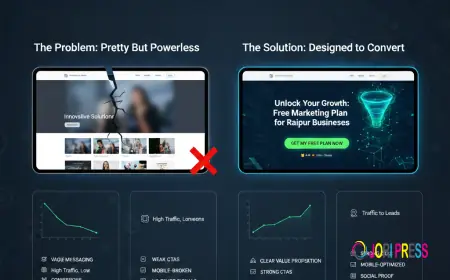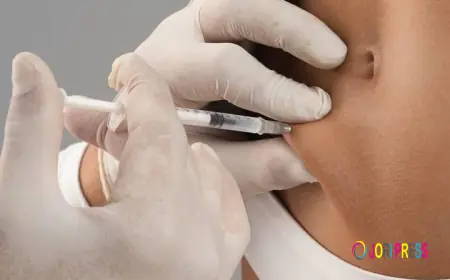Is Sycamore Primary Care the Missing Piece in Your Preventive Health Routine?
Explore how sycamore primary care can be the foundation of your preventive health routine. Learn strategies for early detection, wellness, and longevity.
Preventive healthcare is more than just an annual physical—it's a continuous commitment to well-being. With rising awareness of long-term health risks and the importance of early intervention, many are turning to sycamore primary care as a foundation for their preventive health strategy. But what makes this model of care so effective for proactive wellness?
Understanding Preventive Health: More Than Just a Check-Up
Preventive health focuses on avoiding illness before it starts. Instead of waiting for symptoms to arise, this approach emphasizes early detection, risk assessments, lifestyle changes, and immunizations.
Key aspects of preventive care include:
-
Routine screenings (cholesterol, blood pressure, diabetes, cancer)
-
Immunizations and booster shots
-
Lifestyle counseling (diet, smoking cessation, physical activity)
-
Mental health check-ins
Sycamore primary care integrates all these aspects into a cohesive care plan that supports long-term health.
The Role of Sycamore Primary Care in Preventive Medicine
Unlike reactive or episodic care, sycamore primary care builds ongoing relationships between patients and their providers. These relationships allow for personalized strategies to prevent disease, manage risks, and track health markers over time.
Benefits of a preventive approach through sycamore primary care include:
-
Early detection of silent conditions (e.g., high blood pressure, pre-diabetes)
-
Coordinated care between specialists and primary providers
-
Ongoing support in reaching health goals (e.g., weight loss, smoking cessation)
-
Reduced hospitalizations and emergency visits
Personalized Prevention Plans
Everyone’s risk profile is different. Through sycamore primary care, preventive plans are tailored based on age, family history, lifestyle, and personal goals.
A typical preventive care plan may involve:
-
Annual wellness visits
-
Preventive labs and screenings
-
Vaccination schedule updates
-
Counseling on risk behaviors (alcohol, tobacco, sedentary lifestyle)
-
Mental health evaluations and resources
The key advantage is continuity—seeing the same provider regularly means your history, habits, and health trends are well understood and monitored.
Empowering Patients to Take Charge
Preventive care is a partnership. Sycamore primary care fosters an environment where patients are educated and empowered to participate actively in their health journey.
How sycamore primary care supports empowerment:
-
Clear explanations of health risks
-
Shared decision-making for screening and treatment options
-
Lifestyle coaching and realistic goal-setting
-
Digital tools like patient portals to track progress
This patient-centered approach makes individuals more likely to adopt healthy behaviors and stick to long-term wellness plans.
Preventive Care Across Life Stages
Sycamore primary care tailors preventive care for all ages:
-
Children: Vaccinations, growth monitoring, developmental assessments
-
Adults: Cancer screenings, heart disease risk assessment, metabolic testing
-
Seniors: Bone health, cognitive screening, fall prevention
As patients age, their preventive needs evolve. Having a consistent care provider ensures transitions through life stages are managed effectively.
Sycamore Primary Care and Community Health
Preventive care isn’t only about individuals—it benefits entire communities. Sycamore primary care providers often lead community-based health initiatives such as flu shot drives, nutrition workshops, and screenings.
By identifying patterns in local health issues, they can guide public health strategies that prevent widespread problems before they begin.
Common Preventive Services Offered
Many people are surprised by the range of preventive services available through sycamore primary care. Here’s a snapshot:
| Service | Recommended Frequency |
|---|---|
| Blood Pressure Screening | Every 1-2 years |
| Cholesterol Testing | Every 4-6 years (adult) |
| Diabetes Screening | Every 3 years |
| Mammograms | Every 1-2 years (women) |
| Colorectal Cancer Screening | Every 10 years (50+) |
| Immunizations | As per CDC guidelines |
These services are often covered by insurance or offered at a low cost through primary care clinics.
Why Many Skip Preventive Care—and Why You Shouldn’t
Despite its proven benefits, preventive care is underused. Barriers include lack of awareness, time constraints, and assumptions that feeling fine means being healthy. Sycamore primary care addresses these issues with:
-
Flexible appointment scheduling
-
Telehealth options
-
Proactive outreach and reminders
-
Educational resources
Final Thoughts
Preventive care isn’t a luxury—it’s a necessity for a healthy life. Sycamore primary care makes it easier and more accessible by offering patient-focused, proactive healthcare in one place.
If you’ve been putting off your checkups or screenings, now’s the time to take control of your health.
FAQs About Sycamore Primary Care and Preventive Health
Q1: What is included in a preventive care visit? A preventive care visit typically includes a physical exam, screenings, immunizations, counseling on healthy habits, and a personalized care plan.
Q2: How often should I visit a primary care provider for prevention? Annually is ideal, but some screenings or checkups may be recommended more or less frequently depending on your health profile.
Q3: Does insurance cover preventive services at a sycamore primary care clinic? Most insurance plans cover preventive services with no out-of-pocket cost. Check with your provider for specifics.
Q4: Can I receive mental health support as part of preventive care? Yes, sycamore primary care includes mental health screenings and referrals as part of comprehensive preventive care.
Q5: What if I don’t have any symptoms? Should I still go? Absolutely. Preventive care is designed to detect health risks and conditions before symptoms appear, when they're easiest to manage or reverse.
What's Your Reaction?
 Like
0
Like
0
 Dislike
0
Dislike
0
 Love
0
Love
0
 Funny
0
Funny
0
 Angry
0
Angry
0
 Sad
0
Sad
0
 Wow
0
Wow
0


















































